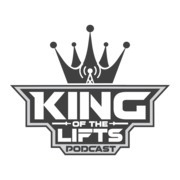Author: Jo Whiteley
The 2023 European Classic was held in the historic city of Tartu, Estonia. The temperatures were lower than most had experienced before, but a thick and beautiful blanket of pristine snow lay over everything, cladding the trees and giving Winter Wonderland vibes everywhere.
The 59kg class kicked off with an intense battle between the 2022 World Champion, Antoine Garcia of France, and up-and-coming Brit, Ishtyaq Nabi. Antoine took the squat gold with 212.5kg but then struggled on bench, allowing Poland’s Dariusz Wszoła to come past with an impressive 145kg bench. However, Dariusz fell back on deadlifts and Ishty shot into the lead with his opener. Antoine got back ahead with 245kg for his second pull but looked close to his limit. He missed his 3rd but Ishty just kept hitting, pulling an incredible 262.5kg deadlift for the win. First blood to the Brits.
In the 66kg class, world champion Panagiotis Tarinidis seemed a little off-form and had a five-for-nine kind of day, falling 25kg short of his total from Malta. However, it was easily enough for the title and to complete his redemption arc with all his titles regained. He left a three way scrap behind him for the rest of the podium places. Austria’s Joel Catena ultimately came out on top, only 2.5kg ahead of both Antti Savolainen (Finland) and Federico Murru (Italy). Antti took the bronze on bodyweight.
In the 74kg class, Norway’s star of raw and equipped, Kjell Bakkelund gave us a masterclass. He did enough on squat for the bronze medal with 262.5kg and then obliterated the competition with a 207.5kg bench – fully 52.5kg more than anyone else in class. That would be a tough one to come back from in any situation, but Kjell was just getting started.
He broke the European total record with his 310kg deadlift opener, and Taylor Atwood’s total world record with his second. His final attempt was 330kg to take the deadlift world record too, recently set by Calle Johansson in Malta. He could have chipped the record with 328.5kg but, when asked why he chose 330kg, he said that he wanted an 800kg total. Happy Christmas Kjell, you got everything you wanted.
This incredible nine for nine performance was also the highest GL point score ever set at an IPF international meet. With Kjell impossible to catch, the three lifters behind him were split only on bodyweight. Dmytro Biliak (Ukraine), Denis Fastelli (Italy) and Dylan Nelson (UK) all hit 702.5kg and about 500g of bodyweight decided the medal order.
The 83s were not to be outdone. Britain’s Jurins Kengamu put in a great performance, picking up the squat gold and the deadlift bronze to hit an 812.5kg total. As he left the platform for the final time, he laid down the challenge to the deadlift world record holder, Enahoro Asein of Hungary: now you have to do something ludicrous to beat me.
Ena had missed his second pull at 373kg and he needed 380kg to match Jurins’ total and beat him on bodyweight. Something ludicrous indeed. The crowd were on their feet as he came out to attempt it and screamed the place down when he was successful. Ena screamed his triumph back at the crowd and the first person waiting to congratulate him as he left the platform was Jurins. Long may these two continue to push each other.
In the 93kg class, Britain’s Christian Ayandokun seemed set for an easy victory, but gave us all a shock when he missed his opening deadlift. He recovered well though, nailing his second and picking up his first international title along with a chest full of medals. Behind him Italy’s Andrea Cicero snagged silver, only 2.5 ahead of Marc Rius (Spain) and Robin Larsson (Sweden).
We were expecting a showdown with the world champion, Anatolli Novopismennyi of Ukraine, in the 105kg class. However, it turned out that he was injured and only put in a token squat and deadlift. He had a crack at the bench world record with 234kg but it didn’t quite come off.
However, the 2022 world champion, Sweden’s strongest firefighter, Emil Norling, didn’t have it all his own way. Ben Pape (UK) kept the pressure on, snagging the squat gold with 335kg and the deadlift silver with 350kg. Emil’s 2nd deadlift of 360kg put him beyond reach though and he took the opportunity to try for the deadlift world record at 391kg. Although it didn’t get past his knees, he knows how it feels in his hands now and we look forward to his next try. Further back, Germany’s Timo Jakobi pipped Norway’s Toni Johannesen for the overall bronze on bodyweight.
The 120kg class gave us everything. Squat records, bench records, deadlift records, close fights, narrow misses and, best of all, a pull for the win. So let’s get into it.
In the B group in the morning, Max Heidenreich of Germany broke the European squat record with 345.5kg and put up a creditable 890.5kg total which ultimately got him the overall bronze. The squat record didn’t stand for long once we got into the A group though. Rising star Jonah Wiendieck of Germany took the junior European record with 342.5kg and then there was an absolute free-for-all for the European open record. Bo Sekenofsky (UK) hit 346.5kg for the record on his second squat and kept it when three subsequent attempts were unsuccessful.
One man stood clear on bench press — Wiendieck. He broke the junior world record with 250.5kg at junior worlds earlier this year and looks intent on pushing it out of reach. Incredibly, this was only his third or fourth powerlifting competition. And that probably led to a bit of a tactical error with his third bench. He selected 253kg for his final press. This matched but did not beat the open world record set by Dennis Cornelius in Killeen in 2016. This seems to have been a mistake from the German team. Normally, an attempt like this would have been rejected by the table as you can’t chip a junior record. However, it was also the European open record so perfectly acceptable at a European championships.
Even though he didn’t get the record he wanted, his bench was a long way ahead of the field and, at sub-total, he was 44kg ahead of anyone else, and 70kg ahead of Britain’s Inderraj Singh. We could all see Indy waiting in the wings for his time to shine, but this seemed like an impossible gap to overcome. Indy jumped up to 2nd place with his opener and then took a big jump from 347.5kg to 380kg. Too big a jump? Absolutely not. Indy smoked it and cut Jonah’s lead to 15kg.
When Jonah missed his final pull, Indy dropped to 395.5kg to win on bodyweight and extend his own deadlift world record by nearly 10kg. The pull was undeniable and the crowd went nuts for Indy Singh’s first European title.
The 120+kg was the final class to lift and they lived up to the hype. Georgia’s junior phenom, Temur Samkharadze, hit 404kg and then 410kg on squat for the open European record and he seemed on top form. Even Türkiye’s Cenk Koçak trailed him by 30kg at sub-total. However, disaster struck on Temur’s second deadlift — an attempt to extend his own deadlift junior world record with 398kg. He dropped the bar and clutched at his leg and, unfortunately, his day was over.
Still, he was sitting with a junior world record total of 1027.5kg and even Cenk hitting 400.5kg for the European deadlift record and FINALLY exceeding 400kg in international competition, wasn’t enough to catch him. Special mention goes to newcomer, Stanley Odin of France. Not long out of the juniors, he hit a 990kg total for the bronze medal and looks set to be a star of the future.
Kjell Bakkelund was best lifter by some margin, with Ena and Jurins pretty closely matched for 2nd and 3rd. GB took the team award ahead of Italy and France.
Don’t take your eyes off the Europeans for too long – they will be back in March in warmer climes to do it all again.

